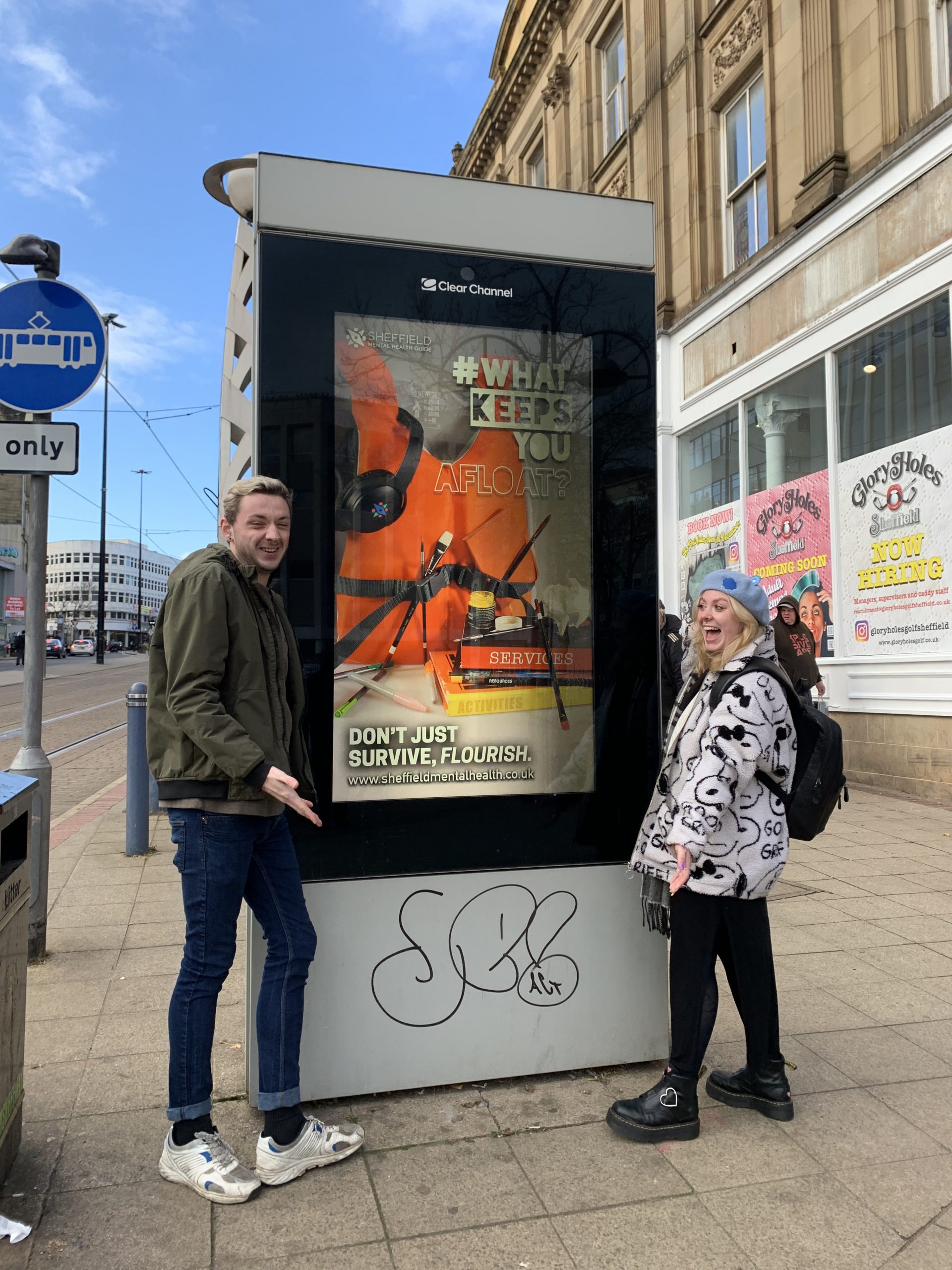On a cold winter’s night in 2013, Ian Courtney’s life was changed forever.
His girlfriend at the time was on duty as a police officer when she heard scratching and whining coming from a box left at the side of the road.
Upon investigating, she found an abandoned 11-week-old female Jack Russell puppy inside.
She made the decision to take the puppy to her and Ian’s home in Newcastle.
Despite much searching for missing flyers and any contacts in the area, nobody came forward to claim her.
The couple then made the decision to keep the pup, who they named Daisy.
This was not something Ian, 39, had planned for.

Ian Courtney, owner of Daisy and Sophia
“I didn’t have time for a dog” he said, but it became clear straight away just how special this little one was.
He said: “I was smitten right from the get go.”

Daisy
Daisy is now eight and a half, and lives life to her fullest alongside Ian and her sister Sophia, a seven and half year old mixed breed who was also rescued from Romania.
Ian is a firm advocate of adopt, don’t stop, and says that his two dogs are his whole life.

Sophia
Struggling to imagine how he could ever give up his beloved dogs, he said: “I’m sure there are a number of cases where people have very good reasons, but there is a difference between dropping a dog off at a shelter and leaving a dog behind.”
‘Don’t be too proud’
Dog abandonment over the festive period is a problem the RSPCA is bracing for as it launches its ‘Join the Christmas Rescue’ appeal this week.
Pet ownership hit new heights as a result of the pandemic, with estimates of more than 3.2m people taking on new pets.
However, as abandonment has risen by 20% this year compared to 2020, the charity fears a surge of pets left behind as people return to normal life following lockdown.
Dermot Murphy, who is in charge of the charity’s frontline rescue teams, urged the public to do the right thing if they can no longer care for an animal.
“Please never abandon a pet. Don’t be too proud to ask for help.”
In December 2020, the RSPCA received 51,815 calls, with 770 on Christmas Day.
Many experts in pet rehabilitation and rehoming say that situations like those of Daisy and Sophia can be easily avoided.
Cleo Wiltshire, 28, from Cambridge is a volunteer dog rescuer and trainer.
Studying a degree in Canine Behaviour, Practice and Management at the British College of Canine Studies, she says: “There are so many problems with how dogs end up in rescue and it starts even before their born.”
From her experience, she believes a huge part of the problem is unregulated family breeders.
She said: “There are so many people who think they should just be able to breed their pets, with no health or temperament testing, no idea how to whelp a litter (help the mother give birth) or look after a mother in pregnancy.”
It is situations like this, a lack of understanding of dogs and poor training which leads to so many pets being handed over to rescues, she believes.
“It’s people breeding dogs with no idea, it’s people buying dogs with no idea and the worst part about this is the first two years of a dog’s life is so unbelievably important.”
‘People need to be regulated’
Cleo is active across many dog rescue Facebook pages and does training with various adopters and with people that run rescue centres.
She finds that most often, dogs termed ‘aggressive’ are actually not that at all, but are simply uncomfortable in their surroundings, confused and scared.
As the animal sector itself is not regulated, no formal training is required in order to set up as a rescuer or trainer.
This is something Cleo feels needs to be changed, with the activity of backyard breeders causing so many issues.
“People do need to be regulated, whether they are rescues are not. They need to make sure they are doing their all for the animals in their care.”
There are so many other independent volunteers out there doing everything they can to ensure the safety of dogs that have either been abandoned or surrendered by previous owners.
Ruth Leckie is the Rehoming Coordinator for Labrador Welfare, a breed-specific charity based in Sheffield.
They have been rehoming dogs since 1989, covering a huge area across the north of England.

Ruth Leckie with her dogs Rambo and Bonnie
Ruth spends her time helping owners through what can be an emotionally distressing time of surrendering their pets. She makes it clear that the charity’s duty of care is to dogs are placed in the right home.
“We are a small team but are passionate about what we do and care deeply about the dogs we do it for.”
She has worked with Labrador Welfare for three years, and has adopted multiple dogs herself through the charity, who came from incredibly sad circumstances.
Rambo came into the centre after being used heavily for breeding.

Rambo
Bonnie was let off her lead whilst her owner walked away in the opposite direction on a nature trail.

Bonnie
Both dogs have found their forever home with Ruth, who dotes on them.
Whilst the charity does not re-home over the Christmas period, they will remain open to take in those dogs who need them.
“People need to understand there is always a choice, and organisations like us are here to help, we will not judge.”
Ruth says that whilst the problem of surrendered and abandoned dogs crops up every year, the impact of COVID-19 has been immense.
“The pandemic has had a massive effect on humans of course, but for every effect felt by a human, that same effect is felt by a dog.”



